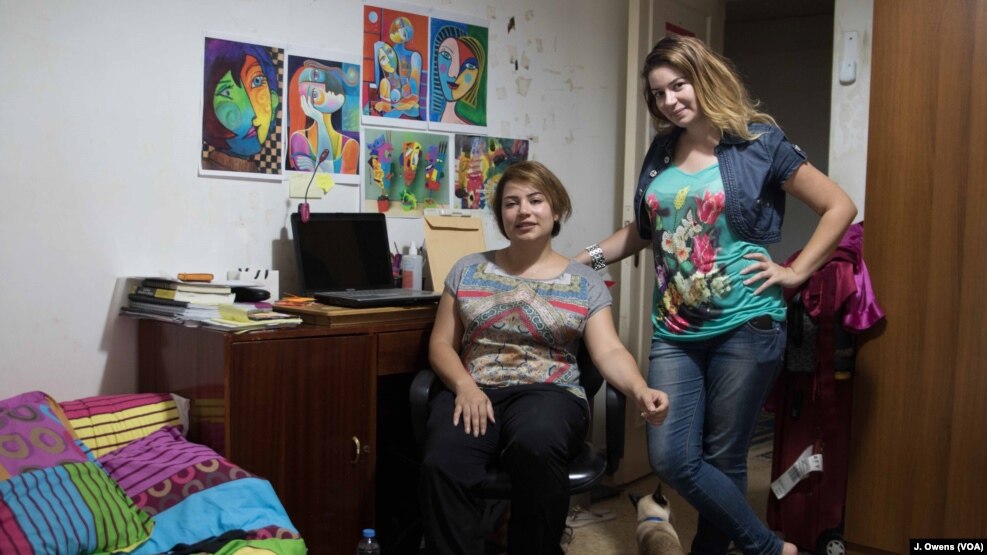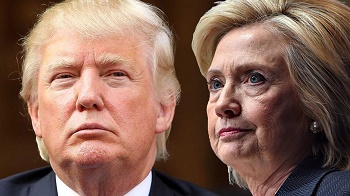Beirut- Lebanon’s Internal Security Forces (ISF) announced Tuesday that an operation to smuggle 3.5 million Captagon pills has been foiled. The thwarted drug sneak in was completed under security collaboration among Lebanese and Saudi authorities. Lebanon’s Central Anti-Drug Office of the Judicial Police thwarted the operation, working in cooperation with Saudi authorities, the ISF said […]
Nemr Abou Nassar is widely known as “Lebanon’s
King of Comedy.” By far the most famous comedian in his country, Nassar —
who’s often billed as simply “Nemr” — regularly performs for crowds all
over the world. He’s recorded five standup specials, been on the Axis
of Evil Comedy Tour and graced the cover of Rolling Stone Middle East. His show A Stand Up Revolution
was a ratings juggernaut for the Lebanese Broadcasting Corporation, but
ended after one season beecause of incompatibility with the network.
While his notoriety has spread across the Middle East and into Europe,
Nassar is still being introduced to American audiences. Eschewing
overtly religious or political material, Nassar aims to bridge cultural
divides with humor.
Westword caught up with Nemr
ahead of his one-night-only special headlining engagement at Comedy
Works South on October 12 to discuss his comedic influences,
introducing himself to American audiences and finding unity in
laughter.
Westword: Will there be your first trip to Denver?
Nemr Abou Nassar: Yes, sir. Never been before. I’m very excited, to be honest.
After
fleeing civil war with your family, you spent part of your childhood in
the States. I know you were pretty young, but do you have any memories
of this period?
Of the time I spent in America, you
mean? I left America when I was eleven, so I definitely have a lot of
impressions of that time because it was very formative for me. But if
you’re asking if I have any memories of the civil war in Beirut, I was
two, so obviously I don’t. But I remember when I did get to San Diego.
My earliest memories are not happy ones, I can tell you that much. When I
think back on it, and I’ve been asked to often, it feels like a bit
blocked off. Not like a trauma or anything, but I could tell that my
parents weren’t happy. When you’re around a household that doesn’t have
happiness, when there’s a lot of stress, it kind of makes things dark
for everyone else around, you know what I’m saying?
By Syed Hamad Ali

Andrew Arsan is a historian at Cambridge University specialising in
modern Middle East and French and British imperialism. His book,
“Interlopers of Empire: The Lebanese Diaspora in Colonial French West
Africa”, won last year’s Gladstone Prize, an annual award from the Royal
Historical Society for the best first book in non-British history.
“We
tend to think about the Middle East only in terms of the flow of
refugees,” Arsan tells Weekend Review as we sit in his office at St
John’s College, Cambridge. “People who are forced out by war, by
dislocation, by conflict. Yes, there is clearly a truth to that,
especially at the moment. But we tend to forget the ways in which Middle
Eastern people moved about freely, for economic reasons — as economic
migrants, as labour migrants … in the late 19th, early 20th century,
people who were moving across the Indian Ocean, and also people who
moved out to the US, South America, West Africa. So I was interested, in
a sense, in not treating the Middle East as an exception, as very
different to other parts of the world, but trying to think about it as a
region, like other regions, which fits into a general pattern of global
history in the 19th and 20th centuries.”

Written by Marco De Novellis – businessbecause.com
The Middle East is often in the news for all the wrong reasons. Yet amid the wars, the terrorism and the tension, new generations of entrepreneurs are looking to change perceptions, drive societal change and improve quality of life.
Among them, Saleh el Khazen, a Lebanese innovator using sports to make a
social impact. Over the past decade, Saleh has worked on construction
projects in Qatar and Lebanon.
He’s a partner and board member of the pioneering ELKA construction
group and founded its Lebanon-based subsidiary – project development and
management company Sminds – before embarking on a project
management-focused EMBA at SKEMA Business School.
The French “Grande école” jets its EMBA students off to study at a
range of international campuses; in Oslo, Shanghai, Dallas, and, as of
2017, Belo Horizonte in Brazil. The program culminates in the “capstone
project” where students can build business plans for their own
entrepreneurial ventures.

by
Beirut, in the words of one designer I talked to recently, is like a third world country that’s put on some makeup.
It
is the capital of a country that has not had a president in two years.
There are daily power outages. It can take an hour to heat water to take
a shower, and garbage removal is a serious problem. There are almost no
street signs, but one can summon an Uber relatively easily.
Despite
all this, or perhaps because of it, creativity thrives in Beirut, which
seems to have more than its share of architects, interior designers,
industrial designers and artists. Most speak at least three languages,
have been educated in other countries and have multiple passports, so
they could live someplace seemingly easier.
“There is a soul here that you can’t find anywhere else,” said Nada Debs, a designer in her 50s with a shop in downtown Beirut.

Within the confines of Lebanon’s Roumieh prison they gathered
together as men recounting lives led before they became seen as
terrorists. Inmates whose affiliations spanned across Islamic State (IS) and a
gamut of other Islamist groups were in discussion and, for once,
religion and politics were not on the agenda.
Instead, led by two pioneering social workers, the talk was to be of their fears, their hopes, their regrets. “The moment you refer to religion or politics it becomes an endless
debate,” explained Nancy Yamout, who along with her sister Maya has been
overseeing sessions that also include art therapy.
“Religion is part of it, of course, but we’re not sheikhs, we’re social
workers. We want to look at how they have reached this point socially
and psychologically.”
For five years they have worked within the prison as they search for a
new way to respond to radicalism, a search that is now taking them from
the Islamists of Roumieh prison into neighborhoods of the dispossessed.
 Changiz M. Varzi
Changiz M. Varzi
As its landmarks disappear one-by-one, Beirut is suffering from a severe
case of architectural amnesia. With the guns of civil war long silent,
the Lebanese capital is still losing magnificent pieces of its past
through the razing of its longstanding memorable buildings.
The city once known as “the Paris of the Middle East” is today a hodgepodge of unsightly high-rises made of concrete and glass that have replaced the grand old structures.
The one thing that has unified the Lebanese political and economic
power-holders amidst decades of political strife, armed conflict and
sectarian confrontation is the pouring of money into Lebanon’s property
market, which has accelerated the process of demolishing legendary
houses.
“This is not a new phenomenon in Lebanon; politicians have always
been unresponsive to these issues,” Elie Karma, a preservation activist
from Beirut, tells Equal Times.
Your Majesty, President Obama, Excellencies, Ladies
and Gentlemen,
In absolute terms, Lebanon is by far the biggest world
donor to the cause of refugees. According to the World Bank, over 15 billion
dollars have been contributed by the Lebanese economy to ensure public
services, education and health to the Syrians and Palestinians who compose one
third of our population today.
In the past
two years, no less than five major high-level conferences on the subject have
taken place. No less than three meetings are held this week here, at the
UN. What do we have to show for all this mobilization of political power? Very
little indeed, especially when we consider the overflow of those crossing now
to Europe.
This faltering of the international
community should be urgently remedied:
First, by
devoting the substantial funding required in order to manage the consequences
of the crisis. Second, by massively investing in development aid in
order to trigger durable growth, create jobs and fight poverty for the benefit
of host populations and refugees alike. Third,
by establishing a transparent mechanism to track the multiplicity of funding
flows, generate synergies and avoid waste. Fourth,
by significantly activating burden-sharing efforts by all countries which have
the possibility to relocate refugees, including by the countries of the region.

I am a Catholic Christian seeking to apply the principles of the Social
teaching of my Church to my political, economic and social
participation.I offer a few examples of how I have approached evaluating
the
two candidates for the Presidency of the United States based upon
principles derived from my faith. I gratefully accepted the invitation
to become a member of the Catholic
Advisory Group to the campaign of Donald J. Trump for the Presidency of
the United States of America. I did so because I love my country, my
God, my Church and my family. I am honored to serve and will offer the
kind of advice which I have expressed in this essay to the Trump/Pence
campaign.
CHESAPEAKE, VA (Catholic Online) – I write as a private American
citizen concerned about the future of the Nation I love. In this essay I
am expressing my personal political views – and I have a right to do
so.
I am a husband to my wife of forty years, father to our five
grown children and grandfather to seven. I am a “family man”, deeply
concerned about the American family and its future. I am also a
constitutional lawyer. I spent much of my career defending religious
freedom as the first freedom and the right to life as the first right. I
have stood at the intersection of faith and culture for decades in
both ministry and activism.

By catholicherald.co.uk
Pope Francis has said that a global war on marriage is underway and
Catholics must respond by helping couples stay strong and by providing
pastoral care to those experiencing difficulty. “Today there is a global war to destroy marriage,” the Pope said
during a meeting in Tbilisi with priests, religious, seminarians and lay
people active in parish life.
“Today you do not destroy with weapons, you destroy with ideas,” the Pope said. “It is ideological colonisation that destroys.” The only way to defend marriage against the onslaught, he said, is to
help couples “make peace as soon as possible, before the day ends, and
don’t forget the three words: ‘May I?’ ‘Thank you’ and ‘Forgive me.’”
“Marriage is the most beautiful thing that God has created,” Pope
Francis said. In marriage, man and woman become one flesh, “the image of
God.” “When you divorce one flesh you sully the God’s image,” he said.



